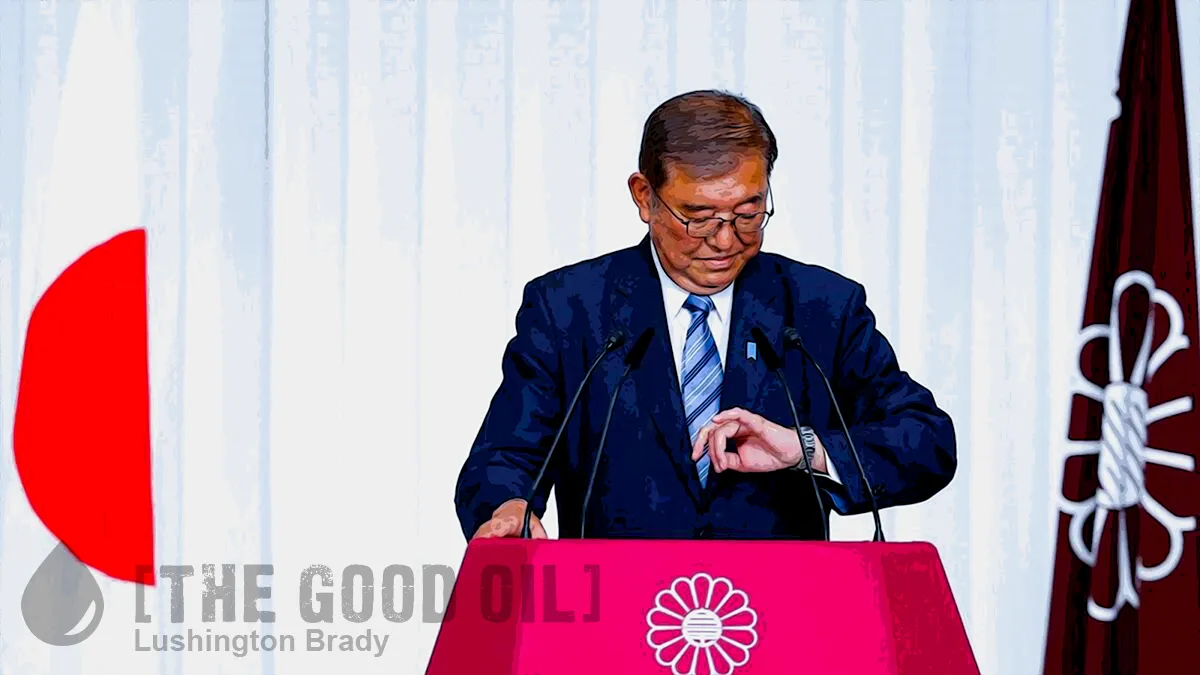Table of Contents
More than a week after its general election, the political situation in Japan remains unclear.
It’s a rare situation for a country whose post-War politics have long been remarkably stable (-ish, anyway). The Liberal Democratic Party has governed for all but a handful of years since 1955. This election, though, saw the LDP and its partner Komeito lose their majority in the Diet.
With the Diet meeting next week to select a new PM, the situation is far from settled.
Over the next week, both parties and those in the opposition will lobby as many of the 465 recently elected lawmakers as they can to elect their candidate of choice as the nation’s next leader – especially in the event of a deciding round between the top two finalists – even as the question of what the next ruling coalition might look like is still unclear.
The Oct 27 Lower House election resulted in the LDP-Komeito coalition finishing with 215 seats (191 for the LDP and 24 for Komeito), 18 seats shy of a 233-seat majority. An Asahi Shimbun poll over the weekend and another by JNN showed Prime Minister Shigeru Ishiba’s Cabinet support rate dropping in comparison with last month – to 34% in the Asahi poll and 38.9% in the JNN poll.
Ishiba, catapulted into the office after his predecessor, Fumio Kishida, resigned amidst scandals and collapsing poll numbers. Ishiba gambled on a snap election – and may well have lost.
Opposition parties are leveraging their newly acquired clout in the Lower House after the Liberal Democratic Party-Komeito coalition lost its long-held majority in the Oct 27 general election, starting with the assembly's agenda.
The government has officially requested a short four-day session from Nov 11 to address the formal election of the prime minister and reallocation of key parliamentary posts according to the outcome of the recent election.
Ishiba is pressing to have the matter settled, so as to be clear to travel to the upcoming APEC forum in Peru, from 15 November. The opposition is hardly about to play ball.
The opposition has yet to agree on this proposed schedule.
In a move seen as an intensification of their offensive on the government, the Diet affairs chiefs of the four main opposition parties – the Constitutional Democratic Party of Japan, Nippon Ishin no Kai, the Democratic Party for the People and the Japanese Communist Party – agreed Tuesday to jointly request the opening of a session of the budget committee and a special committee on political reform.
Yuichiro Tamaki of the DPP is demanding economic reforms as the price of co-operation with the LDP in parliament.
For its part, the LDP has no interest in providing the opposition with a fresh opportunity to publicly attack the government, especially against the backdrop of plummeting approval ratings.
Only 34% of respondents to an Asahi Shimbun poll conducted over the weekend said they supported the Ishiba administration, a 12-percentage-point drop from last month. However, 63% of respondents expressed support for policy negotiations between the LDP-Komeito bloc and the DPP.
In order to solidify its position in the Lower House, the LDP is expected to welcome into its fold several former party members who ran as independents in the election. However, the party’s secretary-general, Hiroshi Moriyama, denied any formal reintegration of such lawmakers in a news conference Tuesday.
Shakeups in the LDP are also likely. If Ishiba is re-elected as PM, he is expected to shuffle at least three cabinet members. At the same time, the LDP is seeking to shore up its numbers by wooing former party members who ran as independents.
It’s all interesting times, indeed, for Japan.









